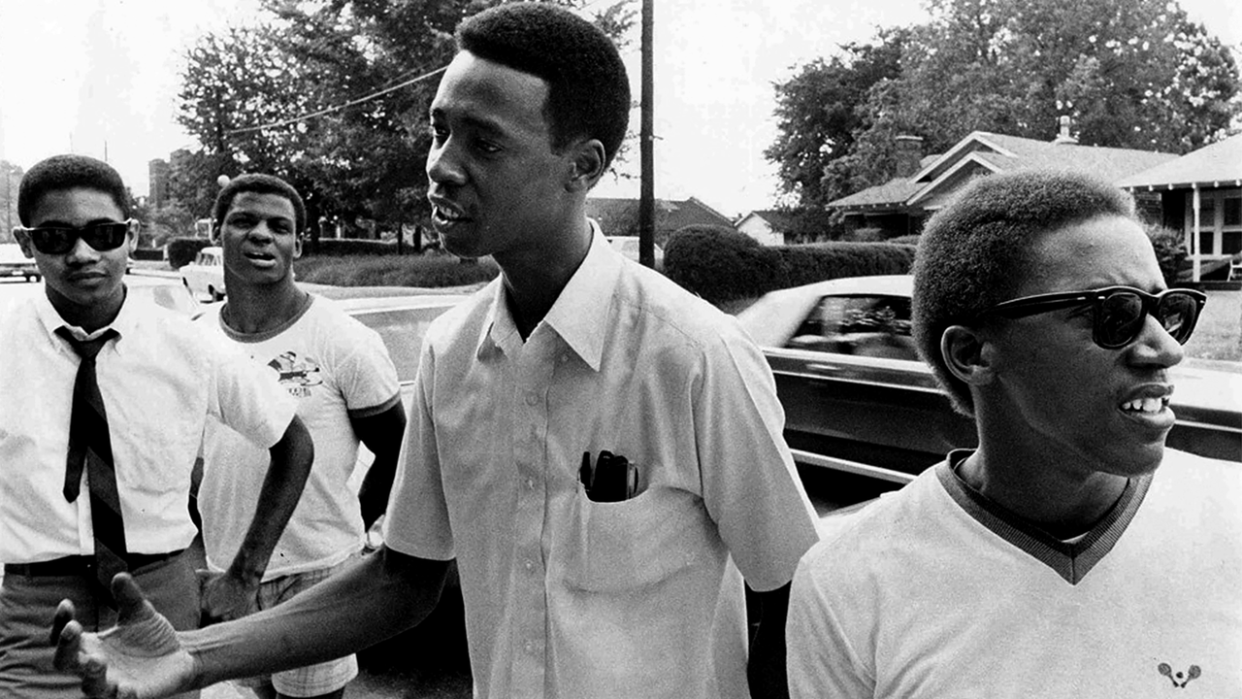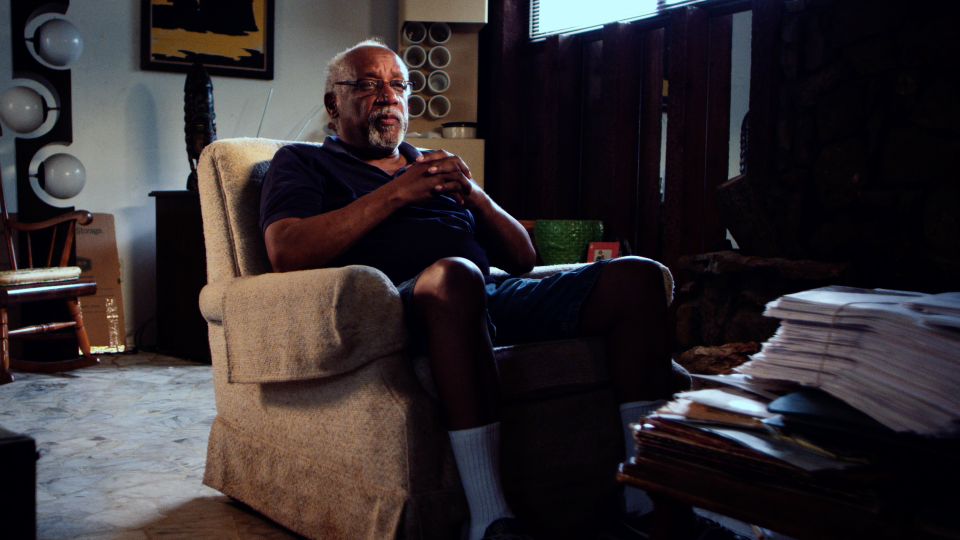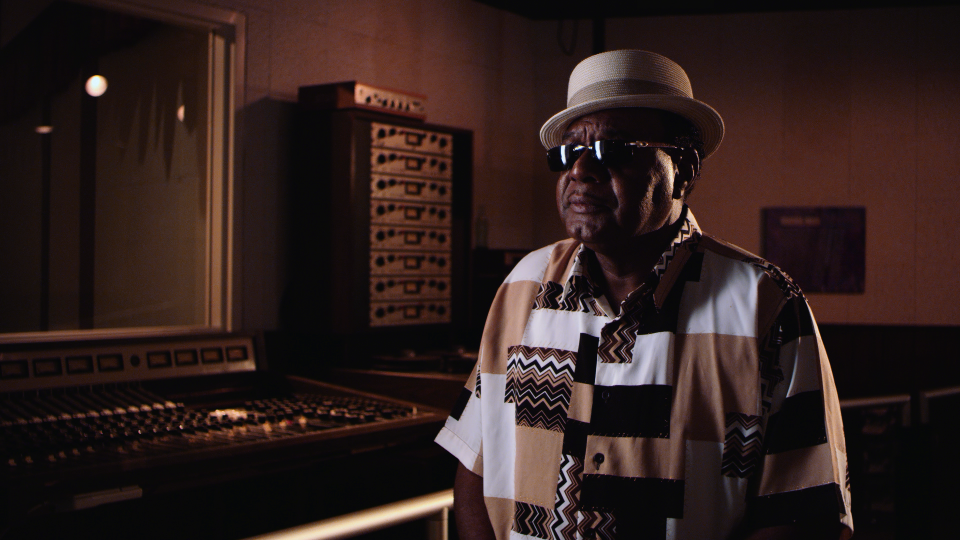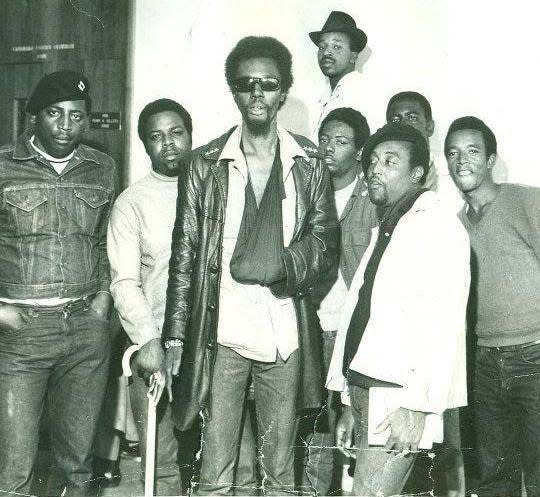'Invaders' documentary showcases 'Black Panthers of Memphis'

Seven years after its premiere at a New York film festival, "The Invaders" — a documentary about the Memphis-based activist group that was the city's answer to the internationally famous Black Panthers — is at last available to audiences everywhere, via video-on-demand.
The delay in distribution was a source of frustration for the movie's director, Memphis-born Prichard Smith, but it ultimately proved helpful: The interim enabled Smith to enlist the powerhouse rappers Nas and Yo Gotti as executive producers. In this role they join Memphis' own Craig Brewer, who has been associated with the film almost from the start.
"The Invaders" became available as on-demand streaming rental in November on multiple platforms, including Amazon Prime and Apple TV. Nas — the New York artist whose 1994 release "Illmatic" was this year ranked at No. 44 on Rolling Stone magazine's list of the "500 Greatest Albums of All Time" — recorded new narration for the film. The Nas connection also led to the recruitment of Memphis hip-hop star Yo Gotti, who signed on as an executive producer on the project, which is being distributed by Nas' Mass Appeal entertainment company.
"Getting hooked up with Nas was what made the difference," said Smith, 48, a graduate of Germantown High School and the University of Memphis who was an active independent filmmaker in Memphis — also, a Young Avenue Deli bartender — before he relocated in 2004 to New York. He is now an editor on the ABC news series "20/20," where he specializes in "long-form true crime" stories, and where his work has earned an Emmy in the News & Documentary division.
It was Smith's professional relationship with director Sacha Jenkins, however, that lifted the fortunes of "The Invaders." Smith has worked as an editor on several project with Jenkins (whose new documentary, "Louis Armstrong's Black & Blue," was tagged in a recent story in Variety as a "top-tier contender" for the next Best Documentary Feature Oscar). A creative director at Mass Appeal, Jenkins introduced "The Invaders" to Nas and pitched the movie for the company. Said Smith: "Nas came into my office where I was editing, and he was like, 'Oh my God, this is such an amazing story.'"
Also, it's generally an unknown story — especially to those outside of Memphis.
New on TV:Meet Vivie Myrick, the Memphis actress in Showtime's new 'George & Tammy' miniseries
Memphis history:The Beatles, Elvis, Jay-Z and more: 15 Mid-South Coliseum concerts to remember
Who were the Invaders?
In the words of a press release from Mass Appeal: "'The Invaders' follows the rise and fall of a militant black power group based in Memphis, Tennessee in the late 1960’s, from its creation to their final negotiations with Martin Luther King Jr. minutes before his assassination. The film touches on themes of race, government surveillance and economic injustice."
"Coming up in the Memphis punk rock scene, I've always been interested in subcultures or underground culture," said Smith, explaining why he wanted to cast a light on a group that at times has seemed lost in the shadows of civil rights history.
Inspired by the Student Nonviolent Coordinating Committee, which had organized sit-ins and other actions since the 1960s, and the more militant Black Panthers, a group that coalesced in 1966 in Oakland, California, the Invaders were founded in 1967 by Memphis college students eager to infuse the energy of youth and the urgency of the "Black Power" movement into the local social justice movement.

Characterized in media reports as "the Black Panthers of Memphis," the Invaders organized food drives and tutoring programs for inner-city kids, while also meeting with King and participating in the protest actions associated with the sanitation workers strike that brought King to Memphis. Even so, the Invaders were mistrusted by some old-school civil rights leaders as well as by the white political establishment.
“We don’t organize burnings,” Invaders leader Coby Smith told a television reporter in 1968, disputing the idea that violence was on the group's agenda. “We organize people.” Nevertheless, the group burned out and disbanded in the wake of the shock of King's murder.
Behind the scenes:'Young Rock' rocks FedExForum as NBC comedy gets Memphis 'mojo'
Film festivals:Indie Memphis Film Festival 2022: Here are the award winners
From 2015 premiere to now
"The Invaders" was written by Smith and J.B. Horrell (a history enthusiast known for his work in such bands as Ex-Cult and Aquarian Blood). Smith edited the film himself, mixing new interview segments (photographed by Memphis ace Ryan Earl Parker) with vintage footage and archival photos, mostly from the University of Memphis Mississippi Valley Collection. The original soundtrack was composed by Canada's King Khan and Memphis' Jack Oblivian; Memphis guitarist Joe Restivo also wrote music for the project. In addition to Brewer (who provided editing space at his Memphis office as well as some financing), Chad Schaffler — the director of the documentary "Memphis Heat: The True Story of Memphis Wrasslin'," which Smith edited — was a local producer, and was "absolutely essential, sticking with us all these years."

The documentary includes interviews with most of the organization's key members, including — to name a few — Coby Smith (a "thinker"); John B. Smith (a John Wayne fan who became radicalized after returning home from Vietnam); Invaders "Minister of Defense" John Gary Williams (a member of the Mad Lads, a Stax vocal group); Juanita Thornton (who describes the Invaders as "folk heroes"); Calvin Taylor (a married student at then-Memphis State who became a reporter at The Commercial Appeal); and Lance Watson, known as "Sweet Willie Wine," who in the 1980s made a major name change, becoming Minister Sukhara A. Yahweh. Time marching on, as it does, several people featured in the film have passed away since Smith recorded their interviews, including Thornton and Williams. (By the way, none of this story's several Smiths are related.)
"The Invaders" had its world premiere at the prestigious Doc NYC film festival in 2015 and was screened at the Indie Memphis Film Festival the following year. An original distribution deal essentially went nowhere, in part because of the expenses associated with clearing the rights to some of the footage and music used in the film. After Mass Appeal became involved, Smith added Nas' new narration and re-edited the film somewhat, to what he calls a "tighter" 80 minutes.

According to the documentary, "The Invaders" moniker was a reference to the then current ABC science-fiction series of the same name, which depicted the infiltration of America by humanoid aliens. Says Coby Smith in the film: "The kind of things we were talking about were as alien to our communities as if somebody had brought in these ideas from outer space."
Unfortunately, Prichard Smith said, some people still act like the idea that America has work to do in the arenas of social justice and racial equality is as open to debate as reports of UFO's. When "The Invaders" debuted in 2015, Smith commented that the concerns that motivated the Invaders remained "relevant"; seven years later, as state legislatures act to stifle school lessons about race and a former U.S. president hosts a friendly meeting with a white supremacist, "sadly, the film just keeps seeming more and more relevant in my mind," he said.
This article originally appeared on Memphis Commercial Appeal: 'Invaders' documentary showcases 'Black Panthers of Memphis'

